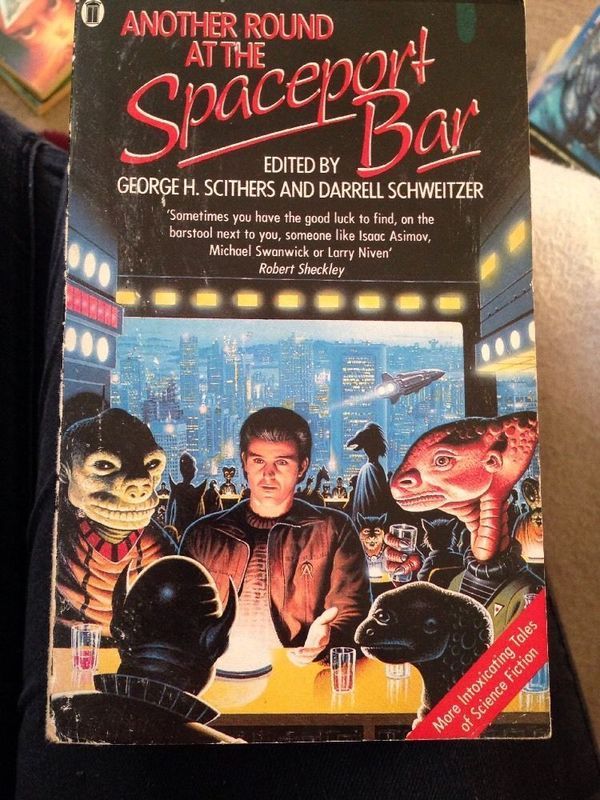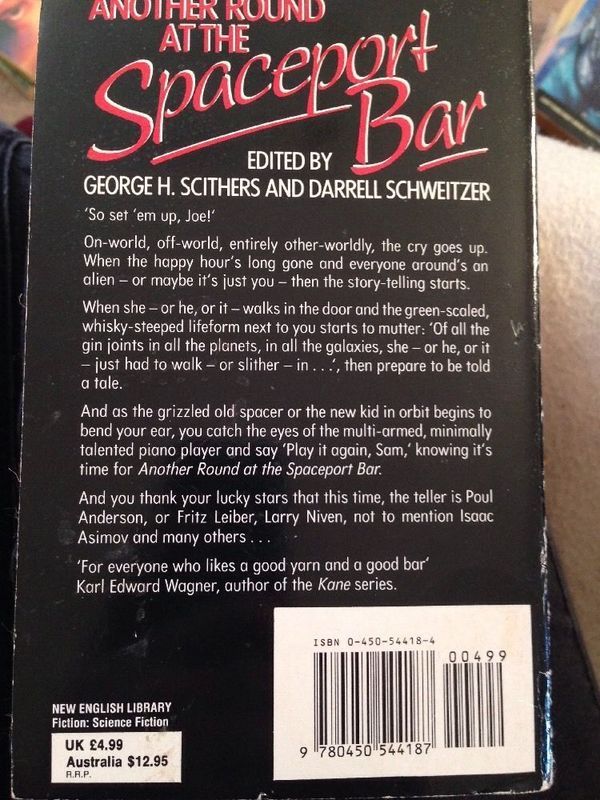Have just, very belatedly, discovered this thread. Would give some input in favour of an author of whom I am, with qualifications and reservations, a fan – and who could be seen to be Forteanly qualified in that in many of his works, magic is an ordinary and everyday component of life in the world.
The author concerned, is Harry Turtledove, writer of sci-fi / alternative history / fantasy fiction. He seems to be one of those authors whom most people either love or loathe – and there’s no shortage of loathers of him. I take delight in a lot of his stuff (some, I emphatically don’t); and I’ll admit that his writing has many glaring stylistic faults / clumsinesses /corny-nesses – and that he basically writes far too much, both in number of books churned out, and in repeating himself within individual works. However, I see him as like the little girl with the little curl: when he’s bad, he utterly sucks; but when he’s good, for me he’s very enjoyable.
He has written a number of series of novels. He seems most renowned for the “Southern Victory” or “Time-Line 191” series, whose premise is the Confederacy winning the American Civil War in 1862, and successfully seceding; leading to a spell of history, followed over eleven novels, from 1881 to 1945 -- nastier overall than what happened in “our real” time-line. Maybe because Turtledove is American and the majority of his readers are American, with chords thus struck -- most Turtledove fandom seems to be focused on the “Southern Victory” series; which I regret, because this series seems to me, weak and uninspired in comparison to other, overlooked, works by HT.
The three series of his in which I take particular joy, are “Videssos”; “Darkness”; and “Worldwar”. Taking them in order: Turtledove is a well-informed scholar of the long-ago Byzantine Empire, and his Videssos novels (eleven books in all, in three sequential, occurring-at-different-times “sub-series”) are about an alternative, “other-world” Byzantium and its neighbours – in this “alternative”, magic is commonplace, and largely replaces our technology. I understand from knowledgeable folk, that Turtledove – his forte maybe not raw imagination, but doing good stuff with the material which he finds to work on – has in the Videssos books, taken and made over into his universe, a great deal of our-world Byzantine history. My knowing virtually nothing about Byzantium and its history, has perhaps worked to my advantage here.
“Darkness” is a fantasy novel series (six books) patterned on a simplified World War II, but in a universe where the geography differs-but-partly-corresponds vis-a-vis Earth – again, a universe where magic, rather than technology, does the biz. It would seem that most otherwise-Turtledove-fans, think the “Darkness” series to be one of his disasters, regarding it as beyond awful. Briefly described in cold blood, it does sound dire – but it just so happened that I was captivated by it, in the first couple of chapters, and I’ve remained so; and I’d be hard put to it to explain why.
His “Worldwar” series is magic-less: premise is, Earth invaded in the middle of World War II (with which conflict Turtledove does seem hyper-obsessed) by an alien race from elsewhere in the galaxy, their objective being to conquer and colonise Earth. These aliens are – as alien would-be conquerors-and-enslavers go – oddly chivalrous and likeable, and not so far removed from humans re processes of the mind, for friendly and empathic interaction to be impossible. In the series, four books about the battle for Earth in the 1940s, between humans and aliens; and three set in the 1960s, when a fragile stalemate situation obtains – the aliens are still on Earth in strength, but Earth’s most technically-advanced nations are still human-run, and have nuclear weapons. There’s a supposedly final seventh book in the series, but universal verdict on that one (including mine) is, that it’s rubbish – author trying hastily to wrap the whole thing up, and failing.
As well as the series, Turtledove has written a fair few stand-alone novels in the same general ballpark: many appear to consider the stand-alones often superior to the series, and I’m rather inclined to agree.



